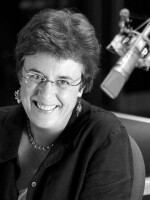For many seniors who are rich in home equity but poor in cash, reverse mortgages are becoming a popular option.
The mortgages allow homeowners age 62 and older to transfer the equity from their homes into monthly income. For some seniors, the mortgages work well, but others have fallen victim to salespeople who use high-pressure sales pitches and unscrupulous tactics to sign them up for the mortgages. As a result, many seniors are paying exorbitant fees or buying unnecessary insurance policies.
In a reverse mortgage, the homeowner takes out a loan against the value of the house, and the loan comes due when the homeowner sells the property, dies or no longer uses the home as a principal residence. The option is particularly attractive to retirees who may have paid off their mortgages years ago but may not have much in their bank accounts.
The growth in these mortgages has skyrocketed in recent years. According to a 2007 report from the Department of Housing and Urban Development, the number of reverse mortgages grew from nearly 8,000 in 2001 to more than 107,000 last year. The average loan amount grew 80 percent to $138,700 during the same time period, a 2007 report from the AARP Public Policy Institute found.
Advocates and regulators say the growth has opened the reverse mortgage industry to salespeople looking for a quick way to make a hefty commission — and some of them are unscrupulous. Some salespeople earn the trust of seniors by calling themselves "registered financial gerontologists" or certified senior advisers. They use aggressive sales methods, enticing seniors through radio and TV ads, and direct mail. They also try to sell other financial products, many of which are unnecessary and come with hefty fees.
Liane Hansen spoke with victims and industry officials about the trend.
Copyright 2022 NPR. To see more, visit https://www.npr.org. 9(MDAzMjM2NDYzMDEyMzc1Njk5NjAxNzY3OQ001))







